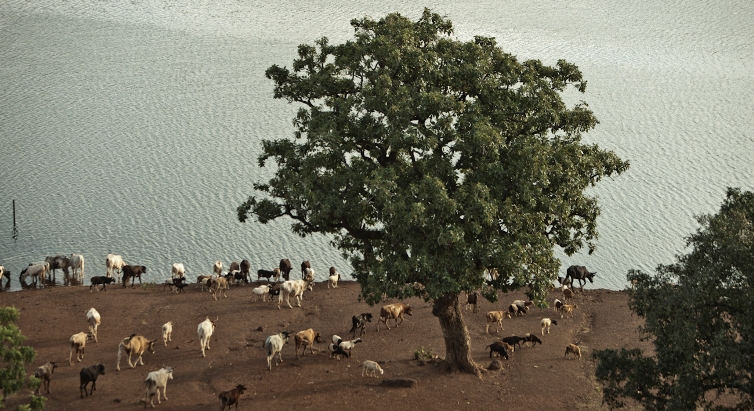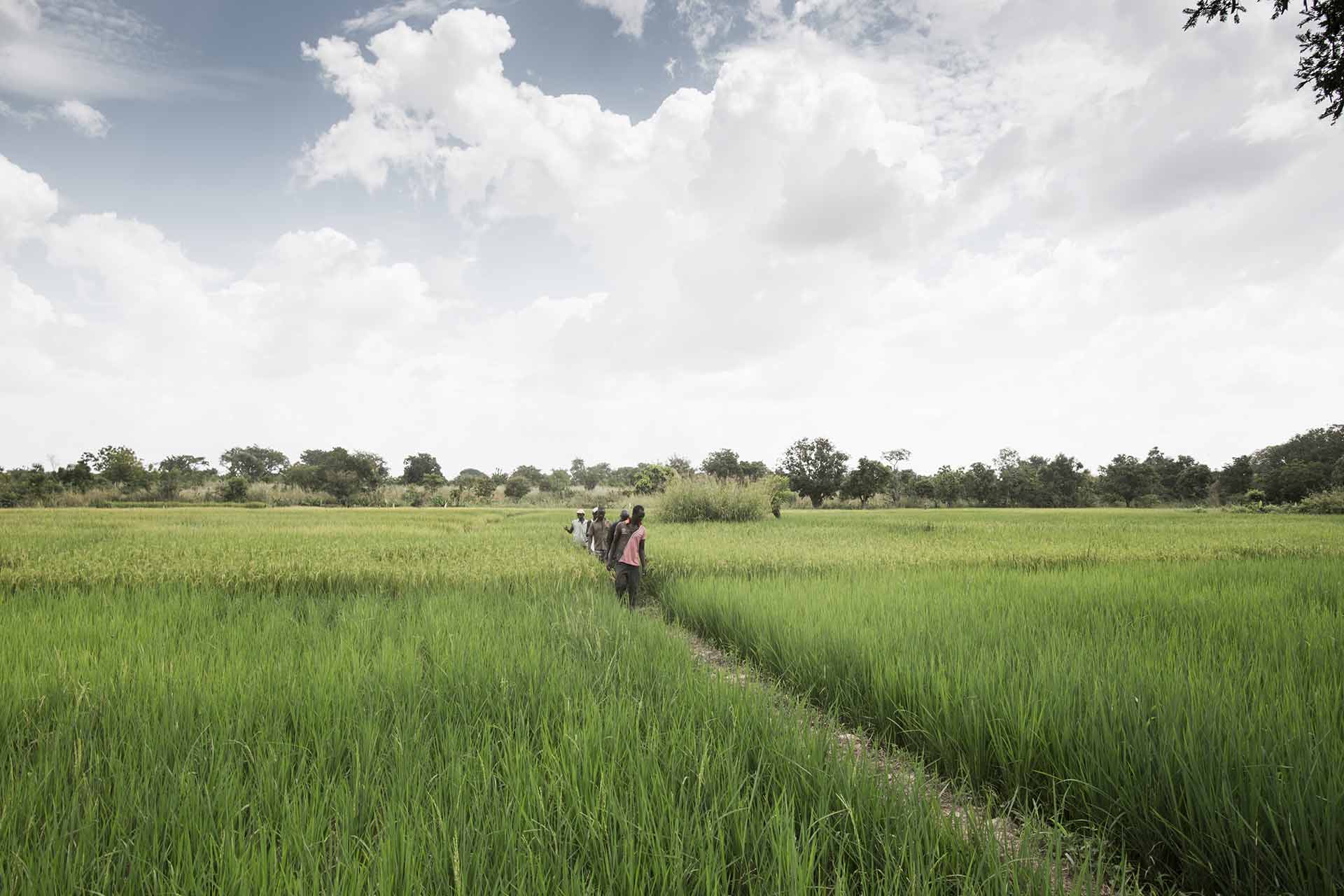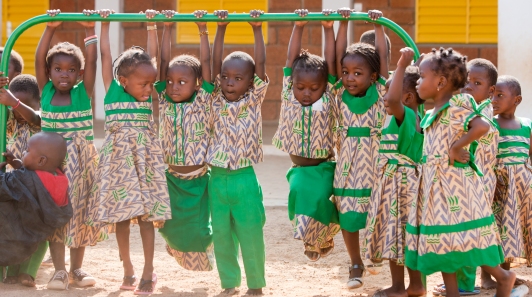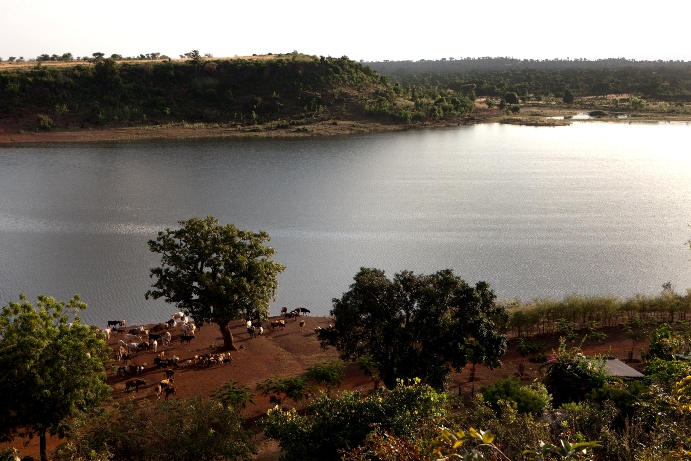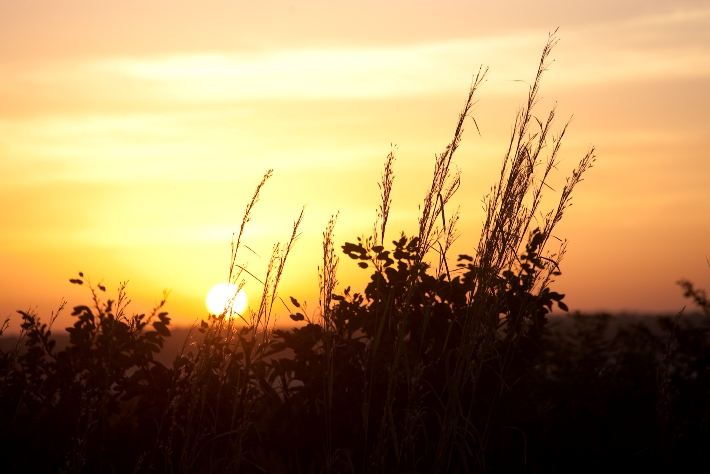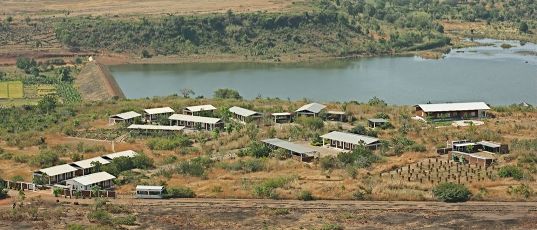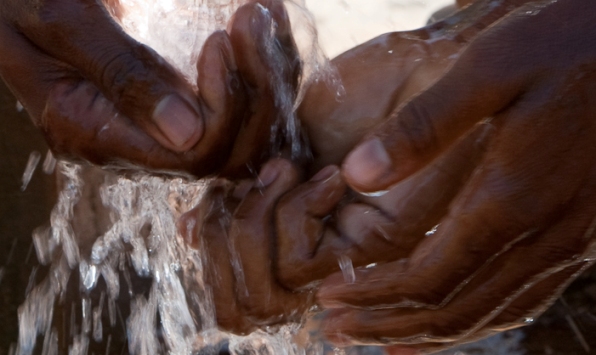
Water
"Water is Life" – this motto of the Dreyer Foundation underlines the essential importance of the availability of clean drinking water for people on the southern edge of the Sahel region and the benefits of water for the year-round farming. The Foundation uses three different ways to solve the problem of water supply: water retention basins, deep wells for drinking water supply and wells for agricultural use.
Due to the construction of large and small dams in valleys, the rain water of the rainy season from June to October is collected to irrigate fields in the dry season from November to May. The first main project of the Foundation was a 300 m long dam near Moutori town with a water holding capacity of 900,000 m3, which was completed in 2002 and continuously irrigated a perimeter of 23 hectares. Other projects include restoration of the dam in Pontiéba and in the sector 3 in Dano, as well as the construction of small dams, protecting from erosion during the rainy season.
Since 2014, the Foundation extensively pursues the conversion of unused lowlands and swamps into rice fields. Through primary and secondary canals, as well as small earth dams, the rainwater of the monsoon rains are distributed over large areas to the previously established fields and retained in such a way that a full rice harvest is possible during the rainy season.
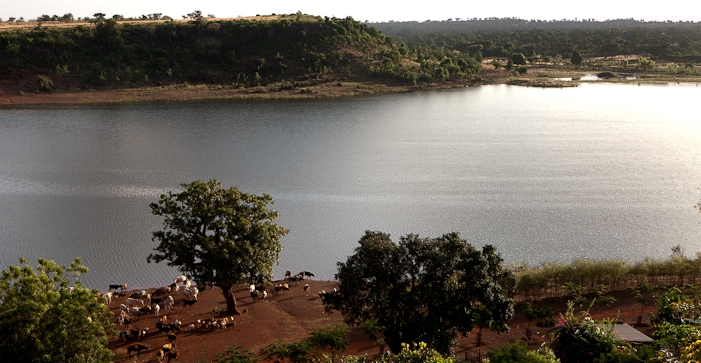
Dam
In the last few years, the Dreyer Foundation has drilled numerous deep wells of 70–120 m deep equipped with hand or electric water pumps to provide schools and individual villages with drinking water. Clean drinking water reduces the number of diseases, in particular of children, by more than 70% and is the most important measure for the preservation of public health.
Wells for agriculture: Due to the extension of hand-built wells to the maximum possible depth of 25 m, vegetables and corn can be cultivated on some limited agricultural properties in the first three months of the dry season.
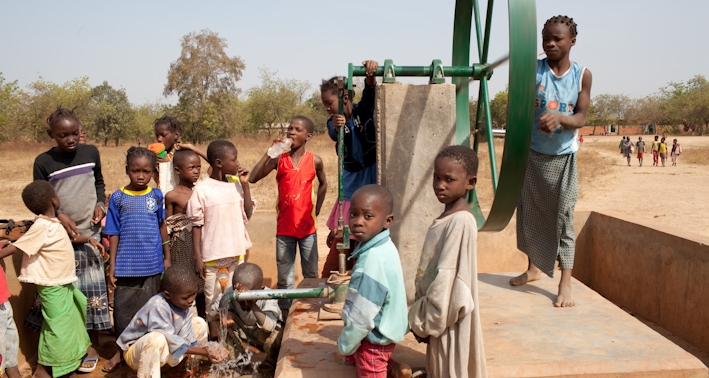
Prospects of water supply
In 2012, the Foundation started an extensive groundwater research project. Its objective is to study the hydrological situation and the behaviour of the groundwater during the rain and dry seasons as well as the whereabouts of the surface water seeped away. Our hope is that a substantial use of water for agricultural purposes is possible without lowering the groundwater level. Depending on the results of this study, economic efficiency calculations in order to analyse the feasibility of a groundwater-fed agriculture will follow.
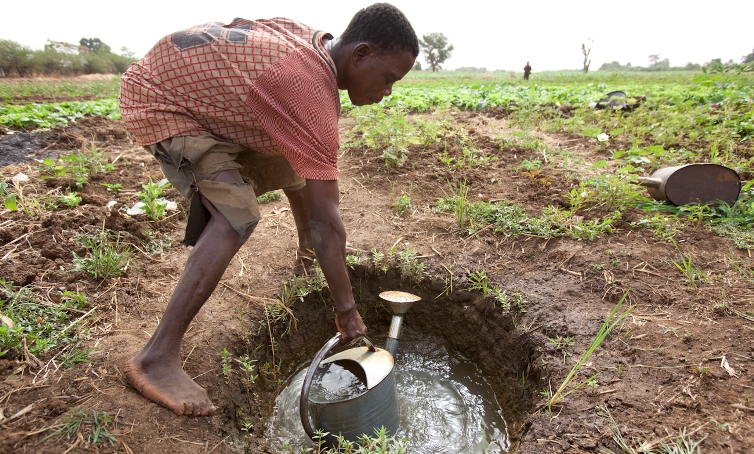
Erosion control
Heavy rains during the rainy season lead to a rain wash of fertile soil in many places. This erosion is a major threat to sustainable agriculture. The construction of small stone ramparts along the contour lines of the area restricts the rainwater outflow, facilitates water infiltration into the soil and thus ensures a better water availability to the plants. This improves the quality of soil in the medium term.
